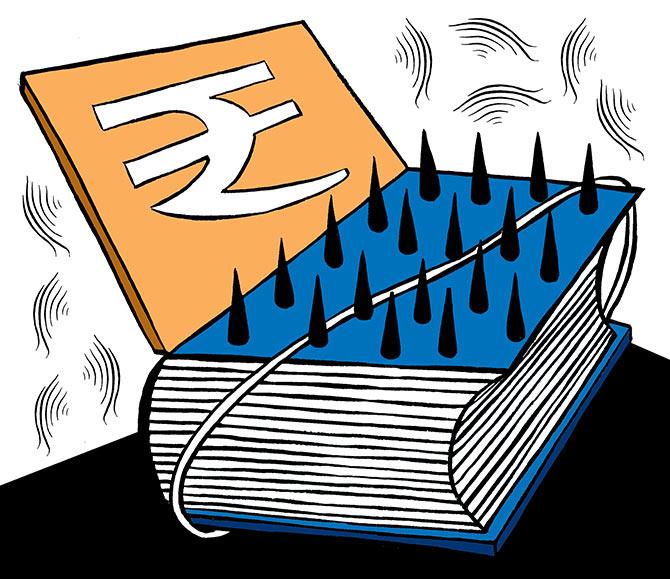This is because the bond market has factored in the Rs 4.88-trillion gross borrowing for April-September 2020.

The Reserve Bank of India is unlikely to monetise the Centre’s fiscal deficit at least in the first half of this fiscal year, sources in the know said.
This, officials said, is because the bond market has factored in the Rs 4.88-trillion gross borrowing for April-September 2020.
Additionally, the officials familiar with the RBI’s thinking said the central bank has not asked any primary dealer to be its proxy and bid on its behalf in the G-sec auctions, contrary to a report published last week.
“The first half borrowing calendar is out, and the markets have factored that in.
"There has been a healthy response to the G-sec issuances. For now, there is no need for the central bank to intervene directly or indirectly,” a government official said.
A look at the full auction results for G-secs on April 8 and 17 show that issuances were oversubscribed.
Sources say this indicated healthy demand of G-secs from investors.
Monetising the deficit is when the RBI directly purchases G-secs on the primary market to help with the Centre’s expenditure.
In turn, the RBI prints more money to finance this debt.
The practice of monetising deficit was in vogue till 1997, when it was discontinued by then RBI governor C Rangarajan.
But for fighting the COVID-19 pandemic and its effects, Rangarajan and others, including former finance minister P Chidambaram and former chief economic advisor Arvind Subramanian, have said that monetisation of all or part of government deficit needs to be done.
States, which have been asking for additional resources, have also suggested this route.
Kerala Finance Minister Thomas Isaac has suggested that not only the Centre, the states should also be allowed to sell bonds directly to the RBI.
A second official said while the central bank had been active in the secondary market, it was not because of any ‘indirect monetisation.
“The RBI did not ask primary dealers to bid on their behalf.
"It is a strategic decision and practice by the RBI not to buy dated government securities that way.
"Now that banks are parking huge liquidity, the RBI has to give bonds in return.
"The secondary market operations are linked to that,” the official said.
Any plan of deficit monetisation will have to be done through public announcement.
It can be done via a private placement by the government with the RBI or through an open market operation (OMO).
“Unless the government decides to borrow more than the budgeted Rs 7.8 trillion - and that decision will be taken in the latter half of the year - direct purchasing of the bonds by the RBI is unlikely to happen,” said a third official.
For the Centre to borrow more than budgeted, it will also mean that the existing 2020-21 fiscal deficit target of 3.5 per cent of GDP will no longer hold.
The Fiscal Responsibility and Budget Management (FRBM) Act allows for a 0.5 per cent fiscal slippage and deficit monetisation under strict conditions.
These conditions include overriding consideration of national security, acts of war, calamities of national proportion, collapse of agriculture severely affecting farm output and income, and far-reaching structural reforms in the economy with unanticipated fiscal implications.
Finance Minister Nirmala Sitharaman had already utilised this 0.5 per cent ‘escape clause’ for 2019-20 and 2020-21 fiscal deficit targets, in her February 1 Budget, before the pandemic hit India’s economy.
For April-September, the Centre will borrow Rs 4.88 trillion, or 62.56 per cent, of the 2020-21 gross borrowing target.
Contrary to market expectations, the government did not increase its borrowing plans for the fiscal year starting April 1, instead relying on front loading of G-sec issuances around the same level as the first half of 2019-20.












 © 2025
© 2025